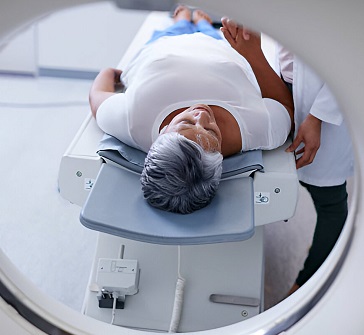 Book Appt.
Book Appt.
 Call Now
Call Now


Prostate cancer is one of the most prevalent cancers affecting men worldwide. It originates in the prostate gland, a walnut-sized organ located below the bladder, and can range from slow-growing, localized tumors to more aggressive forms that spread to other parts of the body. Early detection and advances in treatment options have significantly improved the prognosis for individuals with prostate cancer.
Causes of Prostate Cancer
The exact cause of prostate cancer remains unknown, but several risk factors have been identified:
Symptoms of Prostate Cancer
In the early stages, prostate cancer may not cause noticeable symptoms. However, as the cancer progresses, individuals may experience:
Diagnosis of Prostate Cancer
Stages of Prostate Cancer
Prostate cancer is staged based on the size of the tumor, whether it has spread to nearby lymph nodes, and whether it has metastasized (spread) to other parts of the body. The stages range from I to IV, with higher stages indicating more advanced disease.
Treatment Options for Prostate Cancer
The choice of treatment for prostate cancer depends on several factors, including the type and stage of cancer, the individual's overall health, and personal preferences. Treatment options may include:
Conclusion
Prostate cancer is a complex disease with various risk factors, symptoms, and treatment options. Early detection through regular screening and prompt medical attention can significantly improve outcomes. Advances in research and treatment have led to better survival rates, and many individuals with prostate cancer go on to live long and fulfilling lives. A multidisciplinary approach involving healthcare providers, support networks, and patient advocacy organizations is crucial in the battle against prostate cancer. With proper care and support, individuals with prostate cancer can navigate their journey with hope and determination.
SHALBY Sanar International Hospitals provides extensive medical procedures backed up with our state-of-the-art technology and a team of highly qualified & experienced clinical experts.

Grade 2 Endometrium Cancer | Ms. Robiyakhon | Uzbekistan | Dr. Archit Pandit | SHALBY Sanar

Male Breast Cancer Recovery Story | Dr. Archit Pandit | Cameroon | SHALBY Sanar

Ms. Nafisa’s Inspiring Breast Cancer Recovery | Dr. Archit Pandit | Uzbekistan | SHALBY Sanar International Hospitals

Stage4 colon cancer is curable - Colon cancer with liver metastasis | Kenya | Dr Archit Pandit

Patient from Kenya Treated by Dr. Archit Pandit | SHALBY Sanar International Hospitals

Double Cancer Victory: Mrs. Salma Kapoor's Inspiring Recovery Story | Dr. Archit Pandit

Patient from Uzbekistan Treated by Dr. Archit Pandit | SHALBY Sanar International Hospitals

Patient from Uzbekistan Treated by Dr. Archit Pandit | SHALBY Sanar International Hospitals

Successful Carcinoma Buccal Mucosa Surgery of a Patient from Nigeria by Dr. Archit Pandit

Successful Colon Cancer Surgery of Mr. Faraidun Kaka Bra Amin Amin's from Iraq | Dr Archit Pandit

Miraculous Recovery of a patient from Uzbekistan battling Ovarian Cancer | Dr. Archit Pandit

Successful Cancer Detection & Surgery by Dr. Archit Pandit | SHALBY SHALBY Sanar International Hospitals

Successful Colon Cancer Treatment of a patient from Iraq by Dr Archit Pandit | Surgical Oncology

Successful Glottis Mass & Carcinoma Vocal Cord Treatment of a patient from Iraq by Dr Archit Pandit

Successful Stage 4 Colon Cancer Treatment of a patient from Kenya by Dr Archit Pandit

Surviving the Odds: 56-Year-Old's Journey with Recurrent Carcinoma Vocal Cord | Dr. Archit Pandit

Surviving Recto-Sigmoid Cancer: Mr. Syamand Ahmed's Inspiring Journey

Success Story: Iraqi Patient's Liver Tumour Treatment at SHALBY Sanar International Hospitals

Cytoreductive Surgery Success: Iraqi Patient's 30cm Ovarian Tumor Removed Safely

Beating Liver Cancer: Mr. Abdirashid's Inspiring Story

Ms. Nejood's Success Over Pancreatic Cancer: A Remarkable Journey

Transforming Smiles: Revolutionary Buccal Commando Procedure

Wide Local Excision Surgery & Microvascular Reconstruction of a Cancer patient

Successful Surgery of Esophgeal Cancer

Successful Lung Cancer Surgery of Ms. Jerioth Wanjiru from Kenya

Para Thyroidectomy on Pt Jawad Kadhim Tweli from Iraq

Dr Archit Pandit discusses the fascinating case of Geeta Rani
Our doctors pen down their research findings and experiences from time to time. Their words provide deep insight into the latest techniques, technologies and other advancements in healthcare. It provides expert answers to all kinds of health questions for real-life issues.
VIEW ALL




Since the day of its foundation, SHALBY Sanar International Hospitals is committed to provide comprehensive healthcare services. It regularly organizes awareness programs in its premises and encourages outdoor healthcare activities and camps with an intent to put focus on preventive healthcare.
VIEW ALL